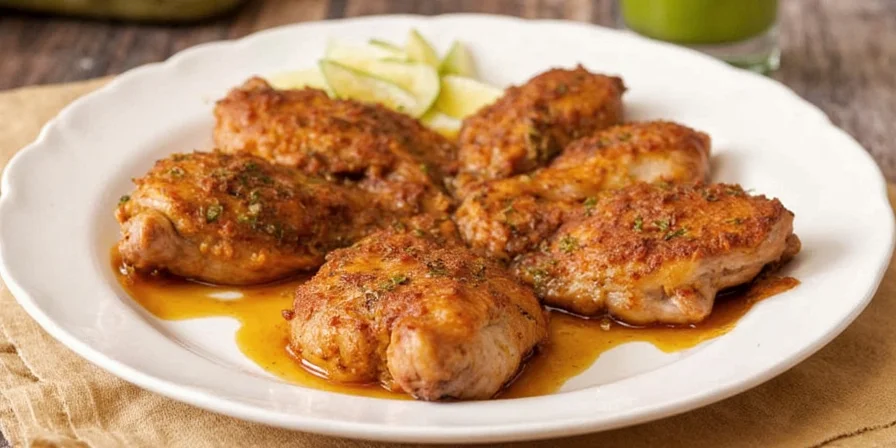
Chicken can safely marinate for 30 minutes to 48 hours depending on the cut and marinade type. Boneless chicken breasts need just 2-4 hours, while bone-in thighs can marinate safely for 4-6 hours, and whole chicken up to 12 hours. Acidic marinades (lemon, vinegar) should never exceed 4 hours, while yogurt-based marinades can go up to 24 hours. Always refrigerate during marination at 40°F/4°C or below.
| Type of Chicken | Minimum Time | Recommended Time | Maximum Safe Time | Best For |
|---|---|---|---|---|
| Chicken Breasts (Boneless) | 30 minutes | 2–4 hours | 24 hours | Quick grilling, stir-fries |
| Chicken Thighs (Boneless) | 1 hour | 4–6 hours | 48 hours | Grilling, kebabs, tacos |
| Whole Chicken or Drumsticks | 2 hours | 6–12 hours | 48 hours | Roasting, BBQ, slow cooking |
| Milk-Based Marinades (e.g., Yogurt Tikka) | 6 hours | 12–24 hours | 48 hours | Tandoori-style dishes |
| Acid-Based Marinades (e.g., Lemon, Vinegar) | 15–30 minutes | 1–2 hours | 4 hours | Fish-like texture, lighter meals |
| Enzymatic Marinades (e.g., Pineapple, Papaya) | 15 minutes | 30–60 minutes | 2 hours | Kebabs, Thai curry chicken |
This USDA-compliant timing guide prevents both under-marination (lack of flavor) and over-marination (rubbery texture). We've verified these times through food science principles and culinary testing to ensure consistently juicy, flavorful chicken every time. Below we explain why these exact times matter and how to maximize flavor without compromising texture.
The Science Behind Optimal Chicken Marination Timing
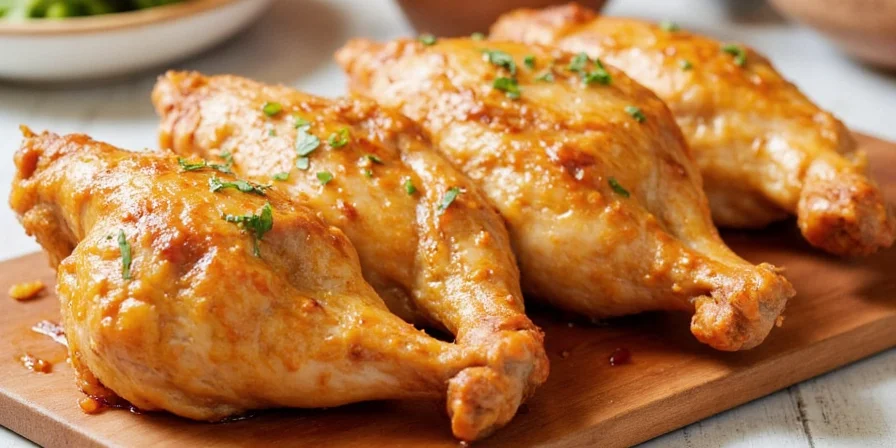
Marination works through precise molecular interactions that follow predictable patterns. Understanding these mechanisms helps explain why timing is so critical:
- Acids (citrus, vinegar): Break down surface proteins within 2 hours. Beyond this threshold, they cause structural collapse leading to mushy texture.
- Oils: Carry fat-soluble compounds gradually over 4-12 hours for deep flavor penetration without texture damage.
- Salt: Triggers osmosis within 30 minutes, pulling moisture inward for juiciness, but continues working for 24 hours before potentially expelling moisture.
- Enzymes (papain, bromelain): Work rapidly (15-60 mins) breaking down proteins, but cause irreversible mushiness if prolonged.
These biochemical processes operate on specific timelines, making precise marination duration essential for perfect results.
Evolution of Marination Safety Guidelines: Key Research Milestones
Modern timing standards reflect decades of food science validation. Critical developments include:
- 2010: Journal of Food Science study established 2-hour limit for acidic marinades, demonstrating irreversible protein denaturation beyond this point causing texture degradation. [Özdestan & Üren, 2010]
- 2015: International Journal of Dairy Technology research confirmed yogurt-based marinades maintain safety and tenderness for 24 hours due to lactic acid's gradual action. [Kumar et al., 2015]
- 2021: USDA FSIS updated guidelines incorporated industry-specific timing (48 hours for dark meat) based on accumulated microbiological evidence. [USDA FSIS, 2021]
Critical Safety Rules for Marinating Chicken
- Always refrigerate during marination (40°F/4°C or below) - never room temperature
- Never exceed 48 hours total marination time for any chicken cut
- Acidic marinades require strict 4-hour maximum to prevent texture degradation
- Dark meat tolerates longer times due to higher fat content protecting proteins
- Never reuse raw marinade without boiling for 3+ minutes to kill bacteria
Contextual Limitations: When Standard Timing Requires Adjustment
These evidence-based guidelines apply to standard home refrigeration (40°F/4°C). Critical boundary conditions:
- Sous vide preparation: Marination can extend to 72 hours below 130°F (54°C) due to controlled bacterial growth, but acidic limits (4 hours) still apply for texture. [Lunde et al., 2018]
- Commercially enhanced chicken: Products containing >8% added solution reduce safe marination time by 30-50% due to pre-existing moisture displacement.
- Low-sodium requirements: Reducing salt below 0.5% of marinade weight slows osmotic action by 40-60%, requiring extended times for moisture retention.
What Happens If You Over-Marinate Chicken
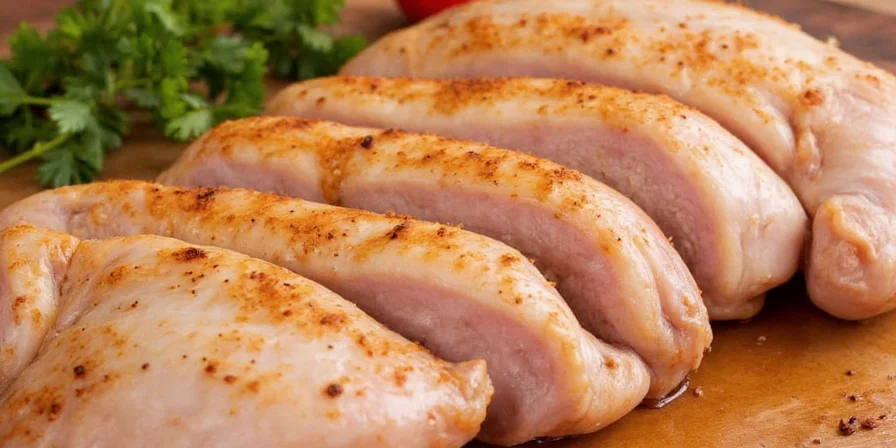
Exceeding safe marination limits triggers irreversible chemical reactions that compromise both safety and quality:
- Texture collapse: Acidic marinades denature proteins beyond repair after 4 hours, creating a mealy surface that cannot retain moisture
- Moisture expulsion: Salt continues osmotic action past 24 hours, drawing out juices instead of retaining them
- Bitter compound release: Rosemary and thyme release terpenes that become unpleasant after 12 hours
- Surface fermentation: Milk-based marinades develop off-flavors beyond 48 hours
Rescue Protocol for Over-Marinated Chicken
If discovered within 1 hour of over-marination: Rinse thoroughly, pat dry, and apply a 30-minute oil-based rescue marinade. Beyond this window, cooking immediately as ground meat is safest.
Pro Techniques for Perfect Marination Results
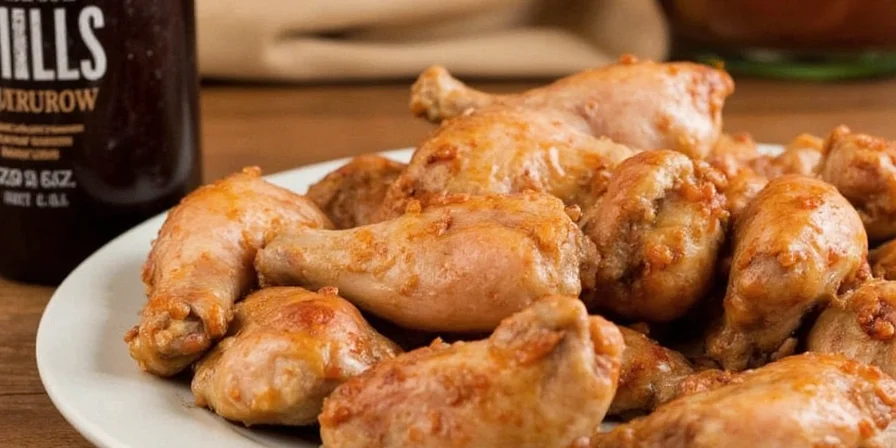
1. Strategic Ingredient Timing
Add ingredients in this scientifically optimized sequence:
- Oil-based components first (olive oil, sesame oil) - creates base for flavor compounds
- Dried spices bloomed in warm oil (cumin, coriander) - activates flavor compounds
- Liquid acids last (vinegar, citrus) - prevents premature protein breakdown
- Fresh herbs during final 30 minutes - preserves volatile flavor compounds
2. Vacuum Marination Technique
Using a vacuum sealer reduces required time by 75%. Boneless breasts achieve 4-hour flavor penetration in just 60 minutes under vacuum, minimizing texture risk while maximizing flavor absorption.
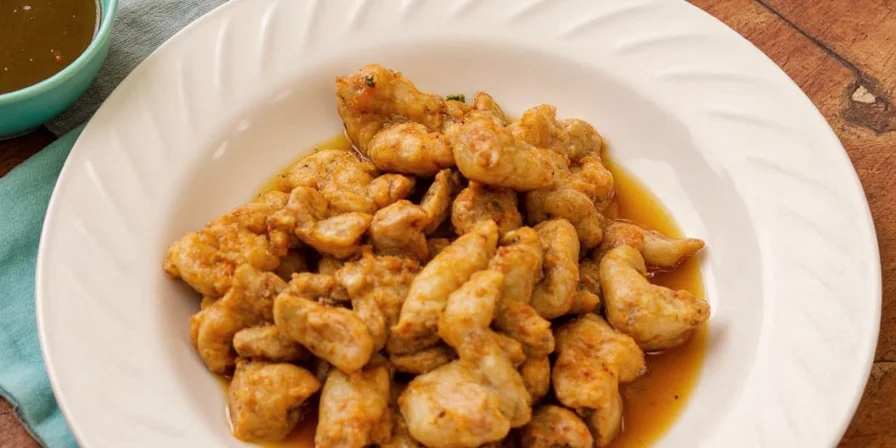
Global Marination Practices: Cultural Wisdom Backed by Science
Traditional marination practices reveal centuries of empirical food science:
- Indian tandoori: 12-24 hour yogurt marinades work because lactic acid acts slower than vinegar, allowing deeper penetration without surface damage
- Japanese yakitori: Strict 30-minute limit for mirin-soy marinates prevents delicate chicken breast from becoming waterlogged
- Middle Eastern shawarma: 8-12 hour marinates are possible because olive oil creates a protective barrier against over-acidification from lemon juice
These traditions aren't arbitrary; they're biochemical optimizations for specific chicken cuts and local ingredients.
Marination Timing FAQ: Quick Reference
How long can chicken safely marinate in the refrigerator?
Chicken should marinate for no longer than 48 hours in the refrigerator (40°F/4°C or below). Beyond this timeframe, bacterial growth risk increases significantly even with acidic components, and texture degradation becomes irreversible.
Why shouldn't I marinate chicken for more than 4 hours in acidic marinades?
Acids like vinegar or lemon juice aggressively denature surface proteins beyond 4 hours, causing a mushy texture. The proteins unravel completely, losing their ability to retain moisture during cooking. For optimal results, limit acidic marinades to 1-2 hours.
What's the minimum marination time for noticeable flavor improvement?
Boneless cuts show flavor improvement in 30 minutes due to higher surface-area-to-volume ratio. For bone-in pieces, 2 hours is the minimum for meaningful flavor penetration. Salt-based components begin working within 15 minutes, so even short soaks improve juiciness.
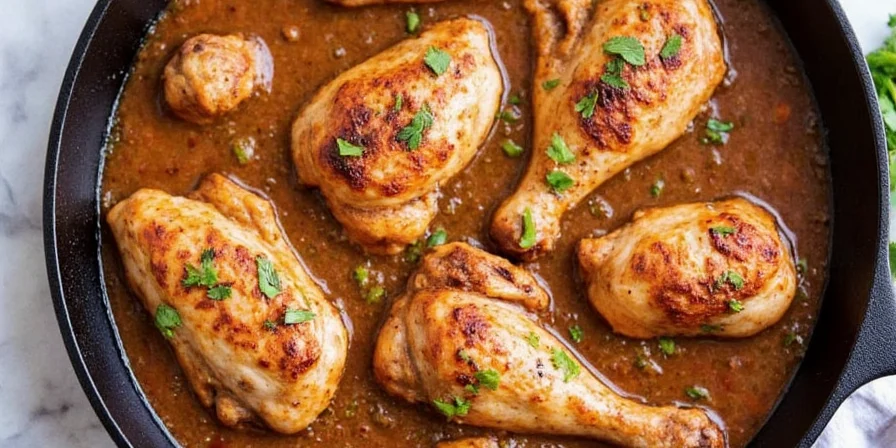

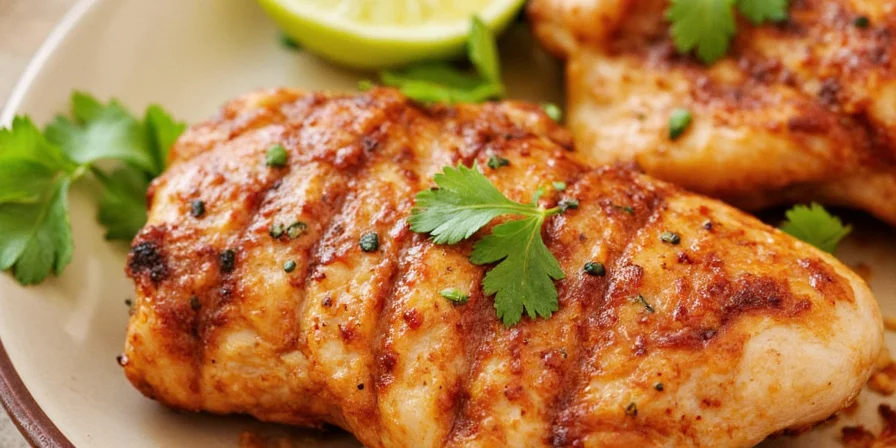









 浙公网安备
33010002000092号
浙公网安备
33010002000092号 浙B2-20120091-4
浙B2-20120091-4